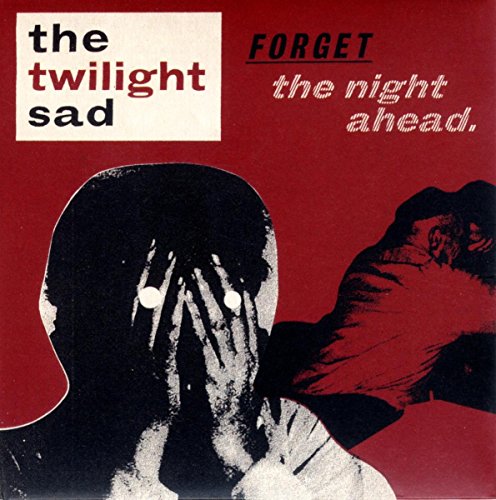
The Twilight Sad
Forget The Night Ahead
Release Date: Sep 22, 2009
Genre(s): Indie, Rock
Record label: Fat Cat
Music Critic Score
How the Music Critic Score works
Album Review: Forget The Night Ahead by The Twilight Sad
Very Good, Based on 8 Critics
Based on rating 8/10
Though the Twilight Sad's debut, Fourteen Autumns & Fifteen Winters, and its follow-up, Forget the Night Ahead, were released only two years apart, it feels like more time than that elapsed in the band's evolution. Granted, the band kept busy during that time, releasing the EP Here, It Never Snowed, Afterwards It Did and the compilation album Killed My Parents and Hit the Road and touring with acts like Mogwai. Just how important that activity was to this album becomes apparent quickly: one of the songs collected on Killed My Parents and Hit the Road was the band's cover of the Smiths' "Half a Person," and Forget the Night Ahead's lead track, "Reflection of the Television," with its dense guitars and James Graham's sullen croon, sounds uncannily like a collaboration between Morrissey and Mogwai.
Based on rating 7.3/10
Brooder James Graham is not a great storyteller. His mission-- along with his band of post-Mogwai Scottish noisemakers-- is to evoke. When Graham repeated lines like, "the kids are on fire in the bedroom," and, "in my dreams I watch Emily dance," on the Twilight Sad's debut LP, 2007's Fourteen Autumns and Fifteen Winters, the specifics were left hauntingly up in the air.
Based on rating 7/10
The weight of expectation can be a hefty burden. Three years ago, The Twilight Sad were something of an unknown quantity outside of Glasgow's vibrant live scene. Fast forward a few months and all that suddenly changed thanks to their impeccable debut Fourteen Autumns And Fifteen Winters, a record that was as near to perfection as any established act - let alone one still going through its formative phase - could ever wish to hope for.
Based on rating 6/10
No one could knock the strength of the Twilight Sad’s sound on their last record, Fourteen Autumns and Fifteen Winters, and songs like “Cold Days From the Birdhouse” were as titanic and brooding as rock music gets. But the album’s detractors also claimed that its monolithic sound was, well, a little too “mono”. But on Forget the Night Ahead, if the band aren’t necessarily out to prove anything, they are certainly moving more towards melody and variety of texture here, giving us a subtler side of their sound that loses none of its power, and actually comes off as a darker slab of songs than its predecessor.
Based on rating 3/5
AGlaswegian friend once told me that the Scots have 40 words for rain - and most of them are evoked over the course of this dreich second album from Kilsyth's Twilight Sad. It's heavy with lashing storms, exemplified by Made to Disappear, which offers a 1980s synth melody where lightning might flash, and That Birthday Present, in which Mark Devine's furious drums collide thunderously with Andy MacFarlane's effects-laden guitar, and James Graham's vocals fall in steady, oppressive sheets. Scissors, an instrumental, conjures up a milder meteorological effect, shimmering as gently as mizzle illuminated by street lamps.
Based on rating 6/10
It’s ironic that, given my Scottishness, I gave up on a certain kind of Scottish music some time ago. Sure, I’ve had some passionate times with Mogwai, and I still like sad, brooding music, but somewhere along the line it all got a little too Scottish. It seemed that all you needed were some guitars, a depressing atmosphere, and some quietLOUDquiet dynamics, and, of course, to be Scottish, and you fitted right in.
Opinion: Excellent
Dynamics, at the core, are an integral aspect to any sheet of music. And even at their most literal definition, the volume increased and decreased in a piece of music can mean everything to its success. While The Twilight Sad’s music borders on two different sets of dynamics: forte (loud) and piano (soft), their ability to manipulate them and force them into something splendidly stimulating is also, at the core, what they are all about as a band.
Opinion: Very Good
Two years after their lauded debut, [a]The Twilight Sad[/a] are attempting once more to inject real emotion and excitement into that sometimes clinical post-rock genre. So while they might seem to share [a]U2[/a]’s fondness for heart-tugging, epic choruses, thankfully that’s where the comparisons to the grande dames of arena rock end. Indeed they’ve sacrificed some of the warmth of [b]‘Fourteen Autumns & Fifteen Winters’[/b] for a much darker ambience, with big melodies and vast romantic landscapes.

